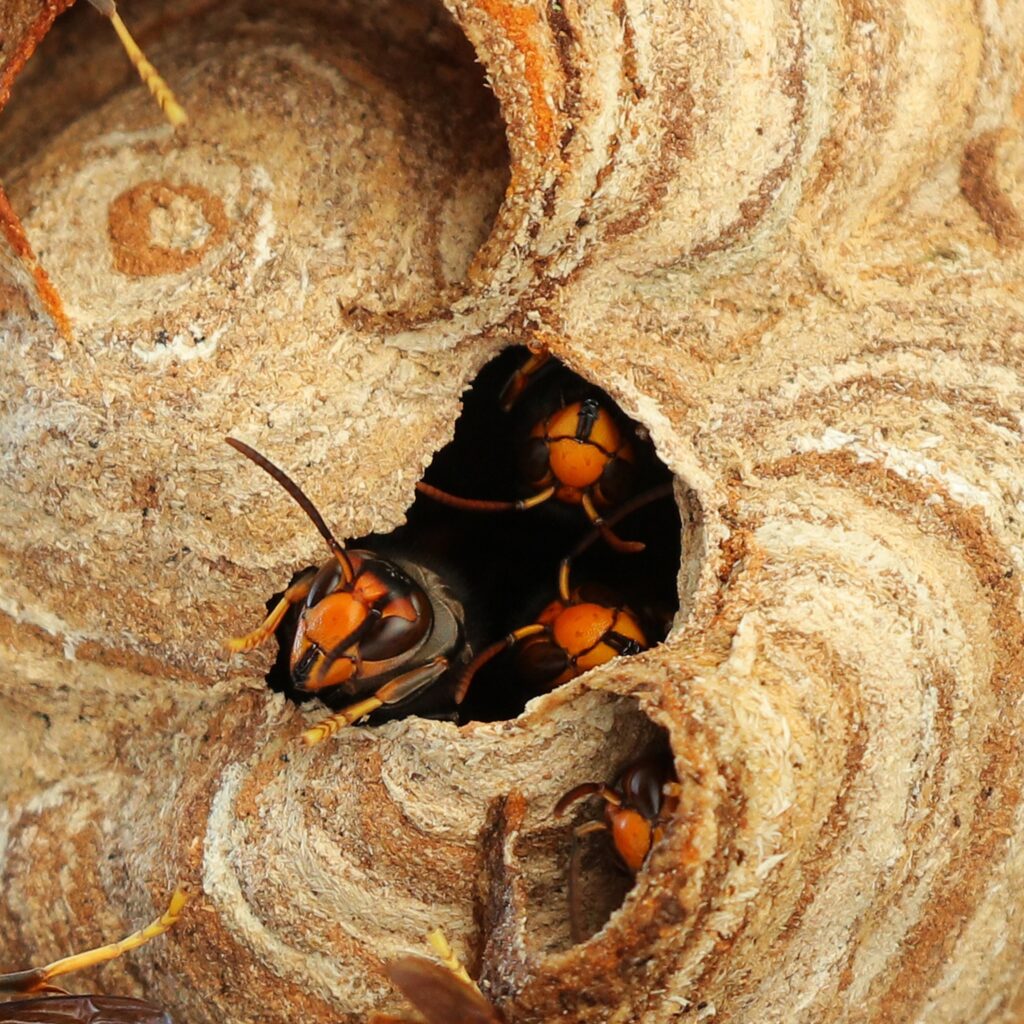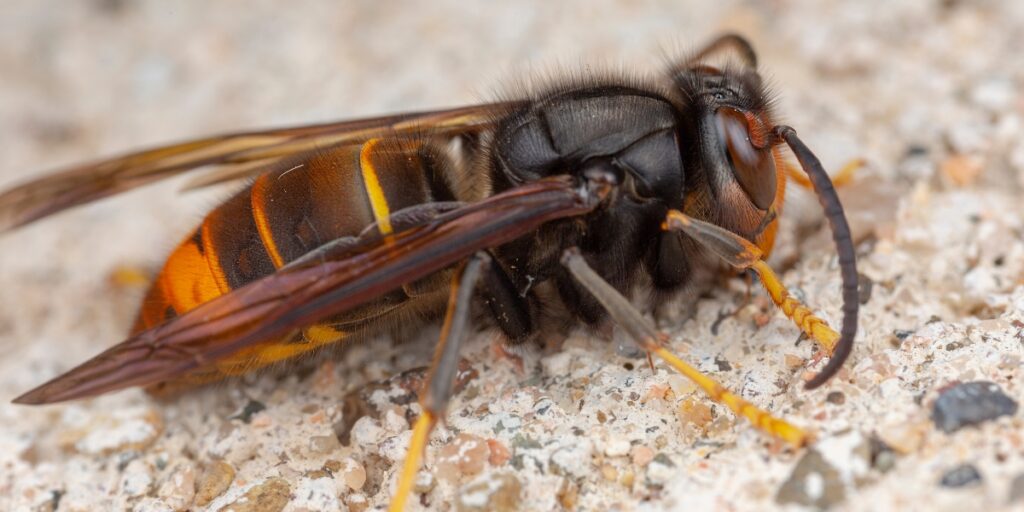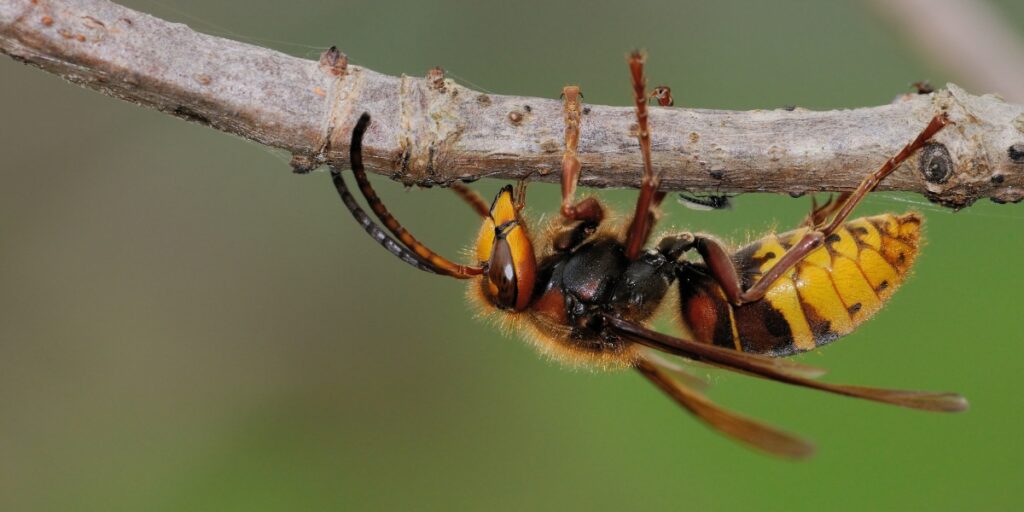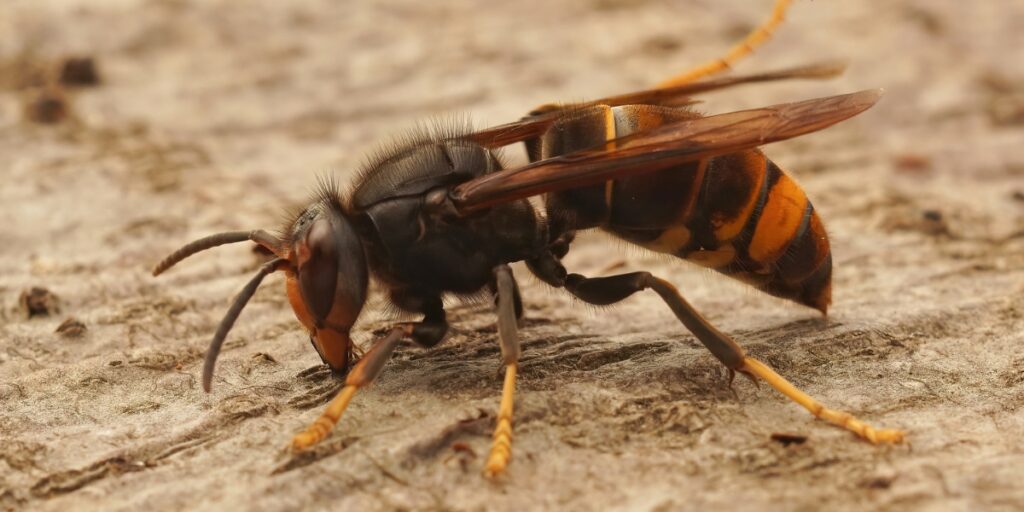
Boxing clever – BASC helps Welsh schoolchildren make bird boxes
Pupils at Ysgol Acrefair School in North Wales are on a mission to improve biodiversity in their local area, with a little help from BASC.
Get information on the legal shooting season for mammals and birds in the UK.
Apply for funding for your project or make a donation today
Comprehensive information and advice from our specialist firearms team.
Everything you need to know about shotgun, rifle and airgun ammunition.
Find our up-to-date information, advice and links to government resources.
Everything you need to know on firearms law and licensing.
All the latest news and advice on general licences and how they affect you.


Asian hornet numbers are on the rise in the UK, presenting a significant threat for native pollinators and the overall health of our ecosystems.
To raise awareness of this invasive insect, the Asian Hornet Week is held in September each year. BASC is actively participating to help spread the word about how to identify and report any sightings of this dangerous insect.
Originally found in Asia, the invasive (yellow-legged) the Asian hornet (Vespa velutina nigrithorax) is thought to have been introduced into Europe via an international import of pots from China to France in 2004. It quickly spread and became well-established by 2022.
Having crossed the Channel sometime in 2016, sightings in the UK have been on the rise ever since. In 2024, there have already been 47 credible sighting reports, with ten nests found and four destroyed.

The biggest worry is that the very first sighting this year was in early January and then in early March. This raised concerns that Asian hornets have been able to successfully hibernate in the UK.
Samples taken from some of the hornets found in the UK this summer indicate that these individuals were directly related to Asian hornets from the two nests destroyed in East Sussex and Kent. This further adds to the evidence that some nests have reached maturity, and new queens successfully overwintered in the UK.
Some of you might think that our native European hornet (Vespa crabro) and the Asian counterpart are very much alike, so why is the latter so dangerous?
The biggest problem is that the UK’s native pollinators have no way of defending themselves against this invader’s attacks. These hornets are far more aggressive and especially keen on hunting bees. And while bees native to Asia have developed defensive mechanisms against this predator, our bees are left defenceless.
Asian hornets stalk their prey and drop down on the unsuspecting bees from above. Honeybees especially get so stressed by this predator that they often refuse to leave the hive, which leads to a complete collapse of the colony. Just a few Asian hornets are enough to kill thousands of bees.
While native European hornets also hunt bees, they do so sporadically, preferring prey which does not fight back, and a healthy colony of bees can successfully defend itself from European hornet attack and deter the predator from bothering them further.

Asian hornets are relatively easy to identify if you have a chance to take a proper look at them. They are much darker than our native hornets and have yellow legs and a distinctive, single yellow segment on the abdomen. They are also slightly smaller than the European hornets.
On the other hand, European hornets are more rusty-brown, including the legs, and their abdomen is mainly yellow. They are slightly bigger than their dangerous cousins and most active at night, which sets them apart from wasps and Asian hornets. They are also far less aggressive than the other two species, rarely attacking unprovoked.
While the Asian hornet is a dangerous invader, European hornets tend to feed on all the most common garden and farmland pests, so their presence should be welcomed and not feared. While they might look intimidating, they pose little threat to people and should be left alone when found. They have been persecuted across Europe to such a degree, that they are now considered endangered and even threaten in some parts of Europe.
In fact, our native hornets can be of help with tackling down Asian hornets. While European hornets are not particularly aggressive, they can be defensive of their nests and will protect their food sources from competitors. Recent reports suggest that our native hornets can tackle down their invasive counterparts and kill them by biting their heads off.
Make sure to pay attention to any large insects buzzing around and try to take a good photograph of any that look like Asian hornets. Please do not take any further action as it can be tricky to differentiate between a European and Asian hornets .
You can set up live traps (again, so non-target species are not killed) and directions on how to make these are easily found online.
Keep an eye on sightings reported to the National Bee Unit so that you know to be vigilant if an Asian hornet is spotted in your area.
If you find a nest of a European hornet, please leave these guys be as they are actively helping us fight Asian invaders.
If you keep bees, please make sure to protect your hives from potential attacks. Advice is available from BBKA, and National Bee Unit among others. Both also provide extensive information on Asian hornets.

All is lost just yet, and it seems that our native wildlife is learning to deal with Asian hornets. As mentioned before, European hornets are not keen on having their cousins over visiting any longer and kill them on sight.
Our native pollinators are also learning to fight back. The buff-tailed bumblebees have a great strategy of evading Asian hornets by simply dropping to the ground when attacked. Both insects fall to the ground which often causes the hornet to release the bee, or at least gives the bee a chance to use its stinger and defend itself until the hornet gives up. For now, only these lucky bumblebees can fight back successfully. So far, out of 120 observed battles between these two insects, bumblebees won the tussle every time.
Unfortunately, even though these feisty bumblebees refuse to surrender, growth of their colonies in areas where Asian hornets are found are still reduced. And native European honeybees are still hopeless against this new threat and need all the help they can get.
You can read more about the Asian hornet in an article we’ve published previously. If you see an Asian hornet, please report it immediately by using the Asian Hornet Watch app (iPhone and Android), by email or online.


Pupils at Ysgol Acrefair School in North Wales are on a mission to improve biodiversity in their local area, with a little help from BASC.

A new National Audit Office report which confirms many of the concerns BASC has raised about Natural England’s regulatory approach and the urgent need for reform.

BASC, alongside other rural organisations, is a signatory to a zero-tolerance declaration on the illegal killing of birds of prey.